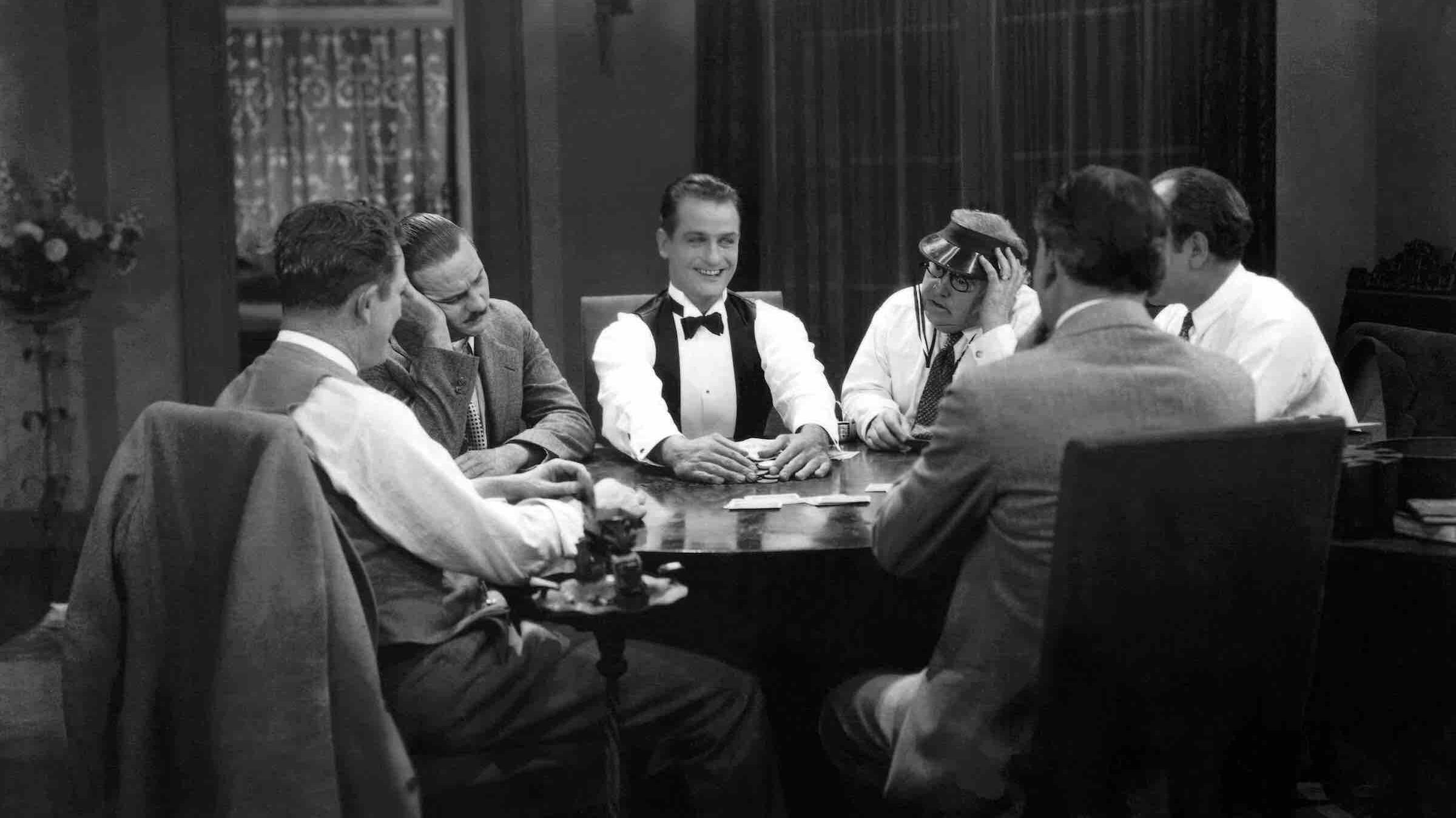Reginald Denny created such a vivid image of the all-American man in his silent film portrayals that when the coming of sound revealed his very British accent, it nearly meant an end to his career. Instead, he was relegated to a series of bland supporting roles as upper-class Brits. But in the 1920s, Denny was one of the most popular leading men in films, the star of many successful light comedies and action movies.
Denny’s comedy was based on his subtle reactions to larger-than-life situations. The films’ endings find him safe from danger (and danger of ridicule), but not before he has endured many awkward and embarrassing situations. Denny’s characters come through their adventures with the fortitude and missteps of the average man; audiences could identify with them. What made Denny’s characters different is that he did not personify an untouchable vision of glamour, but the warmth and sympathy of a friend.
Born Reginald Leigh Dugmore Denny to a theatrical family in Richmond, Surrey in 1891, Denny began his career at the age of eight on the London stage. He toured with stage shows and performed in the United States for the first time in the chorus of The Quaker Girl, a popular London musical exported to Broadway in 1911. The next year Denny returned to the stage in England, then traveled to India and the Orient with the Bandsmann Opera Company. In 1914, he toured again in America, where he performed until enlisting in the Royal Flying Corps toward the end of 1917. During his military training, Denny took up boxing and won the brigade heavyweight boxing championship. During this time, he also was wounded on one of the notoriously dangerous flight-training missions. This spelled the end to Lieutenant Denny’s military career.
In 1919, Denny returned to America. Over the next few years, he acted in about a dozen shorts and features. In 1920, Denny appeared onstage in Richard III, starring John Barrymore. It was the beginning of a close friendship between the two. Denny and Barrymore appeared together in one silent film, Sherlock Holmes (1922), and five sound features, including three films from the Bulldog Drummond series in the 1930s. Denny’s films of the early 1920s were a mixed bag of comedy (39 East, 1920), drama (Footlights, 1921), romance (A Dark Lantern, 1920), and action (The Oakdale Affair, 1919). In 1922, Denny became a leading man, and a household name, with the first three series of The Leather Pushers (1922) films.
The series took advantage of his boxing skills and began the development of his strapping, all-American young man character. It also earned him his first studio contract with the Universal Pictures Corporation. Within the next four years, Denny made the light romantic comedies that became his specialty. The director whose comedic style was most akin to Denny’s was William A. Seiler. As Denny told Kevin Brownlow in The Parade’s Gone By, “we used to sit down and talk the story over before shooting. There was a great interchange of ideas; we’d listen to anybody. If someone thought we could do something better, why not? We’d try it.”
Denny and Seiter’s first film together, The Fast Worker (1924), costarred Laura La Plante, who also appeared in two of Denny’s best films: Sporting Youth (1924) and Skinner’s Dress Suit (1926). La Plante played a deft “straight man” to Denny’s comedy. His most frequent leading lady was Marian Nixon, who costars with Denny in What Happened to Jones (1926).
Denny’s career throughout the 1920s was not limited to acting. He is credited with writing six films, including Fast and Furious (1927) and That’s My Daddy (1928). That’s My Daddy was the second of three Denny films directed by Fred Newmeyer, the director of nine Harold Lloyd comedies. Denny told Brownlow, “we didn’t have the same ideas of comedy,” and Denny himself did much of the directing of the film. Even so, Newmeyer and Denny worked well enough together for Newmeyer to direct one more Denny silent, The Night Bird (1928), which costarred Denny’s future wife Isabel Steiffel (at the time using the stage name Betsy Lee). The marriage lasted for 39 years, until Denny’s death.
Impressed by Denny’s work in action films and his combat pilot training, a Hollywood group of daring stunt pilots, the “13 Black Cats” made him an honorary member. Reginald Denny Jr. recalls his father attempting a stunt that required Denny to stand on the wing of a stunt plane, open his chute, and allow himself to be pulled off the wing. “The pilot circled the airfield for some time attempting to coax Dad into pulling the rip cord. He even tried to shake him off of the wing, but nothing doing. Dad hung on for dear life, until the pilot finally landed with Dad still clinging to the wing strut.”
With the coming of sound, Denny’s career shifted from leading man to character actor, as he could not continue to play the all-American man with his British accent. Instead, he began playing supporting roles as cultured upper-crust Brits. His most famous character of this period was “Algy” in the Bulldog Drummond series. He played the best friend to Bulldog Drummond and represented the carefree spirit that Drummond would have to leave behind if he settled down. This change in status allowed Denny to pursue his other interests. And, Denny officially became an all-American man when he became a United States citizen in the 1940s. His son, Reginald Denny Jr., recently recalled, “Dad was a very patriotic American and genuinely loved this country.”
Denny was also an aviation enthusiast, inventor, and business owner. The Western Museum of Flight in Hawthorne, California, provides a timeline of Denny’s work on his invention of a radio-controlled drone. These drones were used as small (12-foot wingspan) yet realistic targets for military artillery training. In 1935, Denny, in collaboration with engineer Paul Whittier, created and demonstrated a model called the RP-1 for the U.S. Army.
Along with this work, Denny founded Reginald Denny Industries, which created a variety of model planes for recreational use, and in 1935 he opened “Reginald Denny’s Hobby Shop” on Hollywood Boulevard. There were articles written about his model plane development and manufacturing in publications like Flying Aces, Model Aviation, and Mechanix Illustrated. But Denny still found time to have a very busy acting career, appearing in more than 100 films, including Rebecca (1940), Mr. Blandings Builds His Dream House (1948), Cat Ballou (1965), and Batman (1966), until his death in 1967 at the age of 75.
Presented at SFSFF 2004 with live music by Dennis James on the Mighty Wurlitzer

